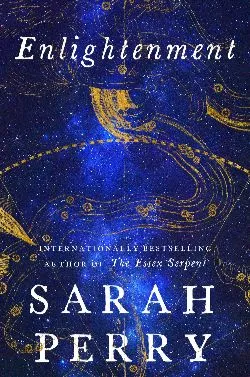
I picked up this novel after seeing a mention of it in the New Yorker’s end-of-year book recommendations for 2024. I had read a handful of reviews on Goodreads before diving in, and I think I was far more impressed by the book than some other readers were.
Enlightenment is a novel that really centers around two main characters, around whom many different threads converge. The most significant character is Thomas Hart, a columnist at an Essex newspaper who begins to pursue astronomy and hunts after the mysterious Maria Văduva, a Romanian astronomer who left little trace in the world. His story is closely entangled with that of Grace Macauley, who he helped raise in his local church, Bethesda.
The novel really interrogates a number of different themes: love, aging, curiosity, legacy, faith, chance, and–perhaps most significantly–Providence. While many of these other themes are frequently discussed in literature today, “Providence” seems to have somehow fallen out of fashion. For the longest time, I assumed that it was best understood as God exerting active agency over the world. There is some truth to it, but this understanding of it is a bit simplistic. These days, I think of Providence better as the physical, spatio-temporal incarnation of the logos. That is, the natural order of all things coming to fruition exactly as they must. In fact, it is impossible for things to be other than they are, because this is the nature of the logos. For more on this, Marcus Aurelius’s Meditations was remarkably helpful for me.
Logos pervades the book, and I think coming at the topic through the lens of astronomy is a wise choice. It seems to me that astronomy is probably one of the single best visual representations of the logos.
Planets move in their orbits, and–from our perspective–things don’t really change. Instead, everything is circular, repeating and repeating forever. There is a determinism to it, too. Cosmic bodies do not choose to behave as they do: this is the watchmaker’s universe. God draws out the blueprint, and the universe executes the script.
The author of Enlightenment, Sarah Perry, handles this topic with attention and care. The book is also filled with random coincidences or, as Carl Jung might call them, “synchronicities.” To Jung, synchronicities are not a sign of chance; rather, they are manifestations of a deeper order. A person’s psychological state mirrors that of the external world, exactly as the Hermetics say they must. There is something deeply spiritual about all of this, and it pulls the characters back to faith, even when they otherwise resist it.
I also found that Perry adroitly handles aging. I’m 30, younger than any of the characters are at the end of the book. However, like Thomas Hart, I also sometimes feel that “things happen not one after the other, but all at once. [. . .] I can’t explain it, only tell you that this afternoon I’m a young man in winter and someone’s handed me a baby at a funeral–but also that I’m fifty, and the man I love is here and the sun is going down–and also that I’m older than I am now [. . .] Everything still happens within me–how else can I make sense of time?”
Perhaps the least compelling book was Maria Văduva’s narrative, but I understand its need to drive the story along, and it was interesting than other MacGuffins may have otherwise been. I think that it also had to be there somehow. The characters are interesting and meaningful, but it isn’t really them that drive the story. Instead, things sometimes just seem to happen to them. We might read the main character here as Providence, which appears through the Maria Văduva mystery. Neither the plot nor the characters move the book along well enough without it, but I also don’t believe it is a crutch. Instead, it adds to the meaning buried in this narrative.
Some of the other reviewers complain about how often we hear about Thomas’s hip, Lorna’s satin, Maria’s pearls, Nathan’s leg, Grace’s dresses, and so on. Fair enough: it does get repetitive at times. However, I also found that these small, repetitive details acted as motifs that helped me better see each of the characters. They all have their signature qualia, and it helped keep the characters straight in my mind.
All this said, I loved the book, and I’m looking forward to seeing what Perry comes out with in the future.